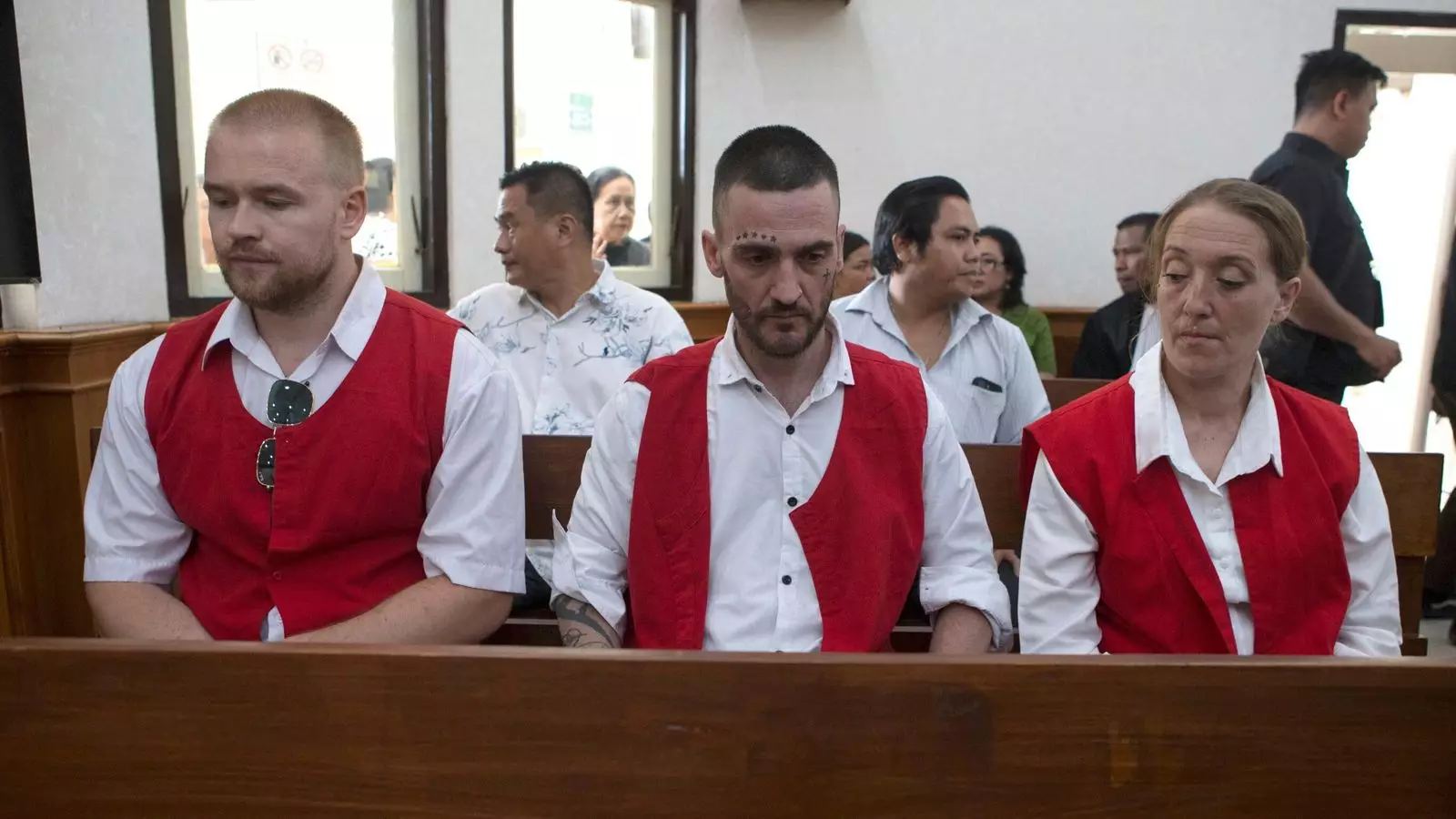The recent case of three British nationals facing death sentences in Bali for drug trafficking paints a troubling picture of justice in Indonesia. Jonathan Christopher Collyer, Lisa Ellen Stocker, and Phineas Ambrose Float find themselves implicated in a world that is fraught with severe penalties for drug-related crimes. With almost a kilogram of cocaine smuggled into the country, their case symbolizes a larger system that is unfortunate yet understandable in its severity. The fact that Indonesia enforces the death penalty for drug traffickers reveals not only the nation’s strict legal framework but also how deeply engrained the drug trade is within the socio-economic climate of the region.
Understanding the broader implications of these laws, one must ask whether the death penalty for drug offenders achieves its intended purpose of deterrence or whether it merely perpetuates a cycle of violence and desperation. A nation rich in natural beauty and cultural heritage, Indonesia finds itself grappling with the stereotype of being an international drug hub. The UN’s observations about drug syndicates targeting Indonesia’s youth are painfully relevant, illustrating a vicious circle where systemic poverty and lack of opportunity lead individuals down paths of crime.
The Tragic Inequities of Drug Enforcement
The fate of Collyer, Stocker, and Float serves as a haunting reminder of the tragic inequities present in the global war on drugs. They stand accused of smuggling cocaine into a country with notoriously harsh drug policies, facing judicial action that can culminate in execution. The Indonesian authorities, bolstered by a public that often vehemently supports tough anti-drug measures, paint drug smugglers as enemies of society. However, the wider community often overlooks the socio-economic contexts prompting these individuals to take risks with dangerous consequences.
It is highly likely that the mere notion of a heavy prison sentence—and not execution—would suffice as a more reasonable deterrent. After all, the prospect of opening a door to a thriving prison system, replete with its own injustices, could just as easily serve as a deterrent without resorting to the ultimate punishment. The Netflix documentary series “How to Sell Drugs Online (Fast)” might have driven home the point that youthful impulsivity can sometimes lead to grave mistakes, albeit unwittingly. Yet, these individuals are too often demonized by a society eager to find scapegoats for its problems.
The False Sense of Security in Strict Laws
Investigating the smuggling case at hand also forces a halt to explore Indonesia’s own failure to address the root causes of drug trafficking. While law enforcement focuses on punitive measures, the reality is that strict legal frameworks don’t provide safety; instead, they divert attention away from the education and rehabilitation needed to confront drug-related issues. Indonesia’s detention of over 530 individuals on death row, many for drug-related crimes, does not suggest progress but rather reveals the failings of a social structure that watches from the sidelines as its citizens are ensnared.
At the heart of this brutal approach to drug enforcement lies the question of effectiveness. With 96 foreigners among those sentenced to death in Indonesia, one wonders whether global drug syndicates will simply adapt to circumvent stringent laws. Focusing on punitive measures might provide the illusion of control but does little to dismantle the systems that perpetuate drug trafficking networks.
Questioning Justice in a Globalized Situation
In light of this alarming situation, one cannot help but feel a growing sense of disillusionment. The case against Collyer, Stocker, and Float will unfold, and perhaps their punishment will shine a light on the systemic issues at play. However, one thing remains clear: justice in Indonesia’s drug enforcement landscape is distorted by brutality, overshadowed by fear, and riddled with missed opportunities for meaningful change.
As debates rage over the ethical implications of capital punishment for drug offenses, it is crucial to remember that each case of drug trafficking encapsulates broader social issues that deserve thoughtful consideration. The execution of smuggling offenders will not rid society of its troubles related to drug abuse; instead, it simply serves as a tragic reminder of how the legal system often fails its most vulnerable citizens and those led astray by desperation.


Leave a Reply